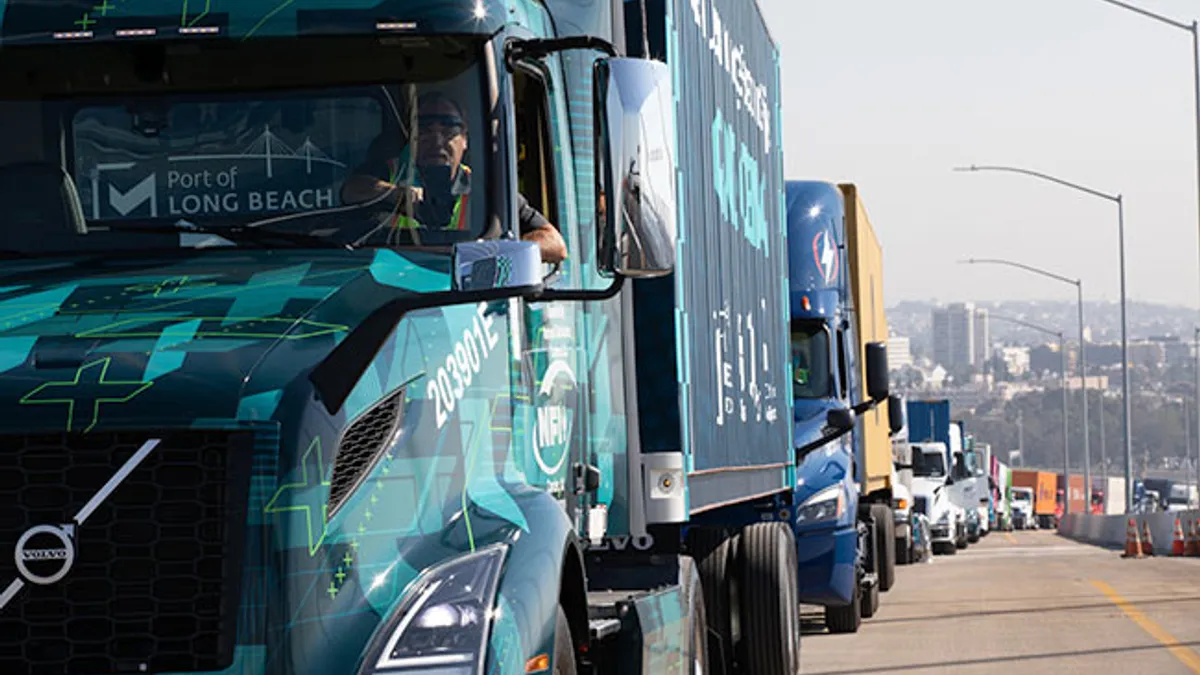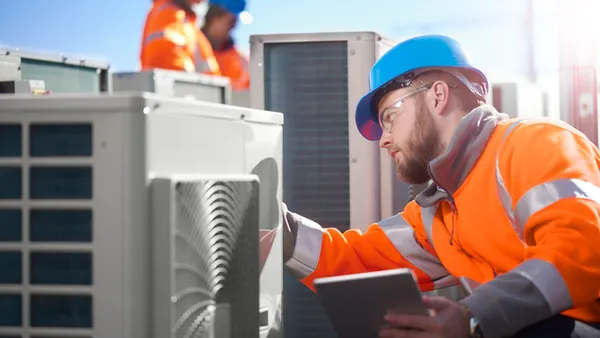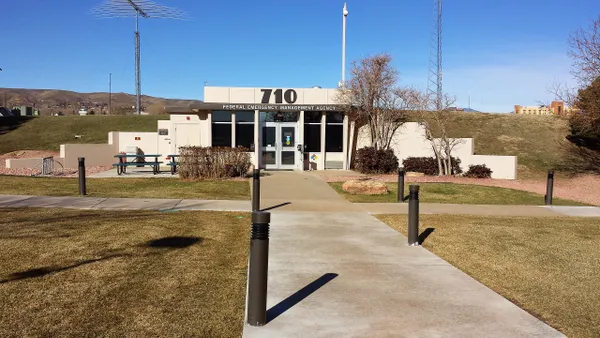Dive Brief:
- The Long Beach Board of Harbor Commissioners approved an exemption from the Clean Truck Fund Rate "for the cleanest" natural-gas-powered trucks, according to an announcement Monday. The rate, which has been set at $10 per 20-foot equivalent unit for any non-zero-emissions truck at the Port of Long Beach and the Port of Los Angeles, has not yet been implemented.
- This new exemption applies to trucks picking up or dropping off loaded containers at the Port of Long Beach that use natural gas engines that meet the 0.02 grams of nitrogen oxides per brake horsepower-hour standard, according to the announcement. To be eligible for the lifetime exemption, trucks must be purchased and registered in the Port Drayage Truck Registry by Dec. 31, 2022.
- Electric trucks already have an exemption to this pending rate. The natural-gas exemption aims to incentivize the trucking industry to adopt cleaner fuels "while zero-emissions technology catches up," the announcement said.
Dive Insight:
The Clean Truck Fund Rate was approved by the two San Pedro Bay ports last year, but it's not expected to take effect before early 2022, Port of Long Beach Executive Director Mario Cordero said in an email. The rate is expected to generate $80 million in its first year, according to the port.
If trucking companies want to avoid contributing to that total, they'll have to adopt greener technology ahead of the rate's implementation.
The San Pedro Bay Ports Clean Air Action Plan aims to transition the entire fleet of trucks at the two ports to zero emissions by 2035. That goal is aligned with proposed state regulatory efforts that are expected to mandate zero-emission drayage trucks by 2035, Cordero said.
And 10 years after that, the California Air Resources Board's Advanced Clean Trucks Act is set to fully take hold, banning all sales of new non-zero-emissions vehicles.
"Right now, if a truck owner is making a choice of what to purchase in advance of the upcoming CARB regulatory deadline, we want them to choose the cleanest available technology — a Low-NOx truck — as opposed to purchasing diesel," Cordero said.
In California, the necessary equipment is perhaps more available to fleets than it is in other states. Much of the activity around electric-truck development has taken place there, thanks in large part to funding from the state government.
NFI is working with Daimler in Chino, California. And Los Angeles-based Dependable Supply Chain Services is participating in Volvo's Low Impact Green Heavy Transport Solutions project, known as Volvo LIGHTS. That program is supported by a sizable investment from CARB.
Though numerous projects are in prototype and pilot phases, no fully electric trucks are being produced at commercial levels. Alternative fuels offer a way to be greener, in the meantime.
"These trucks will emit 90% less nitrogen oxides than equivalent vehicles today," Cordero said in the announcement. "The question we were asking ourselves was do we reduce emissions now or do we wait for tomorrow?"
Providers of alternative fuels have been focused on setting up shop in the Golden State. SoCalGas has dozens of compressed natural gas stations for heavy-duty trucks in the area it's named after. Last October, the company started providing California-produced renewable natural gas at a number of its stations for the first time.
Renewable diesel is also becoming more available in the state. Neste, whose renewable diesel is approved by CARB, has 13 fueling locations in California. U.S. Gain is working with AJR Trucking to build a renewable natural gas station roughly 16miles from the Port of Long Beach. Even the renewable diesel that the Love's Family of Companies and Cargill plan to produce in Nebraska will be, for the most part, headed to California.















